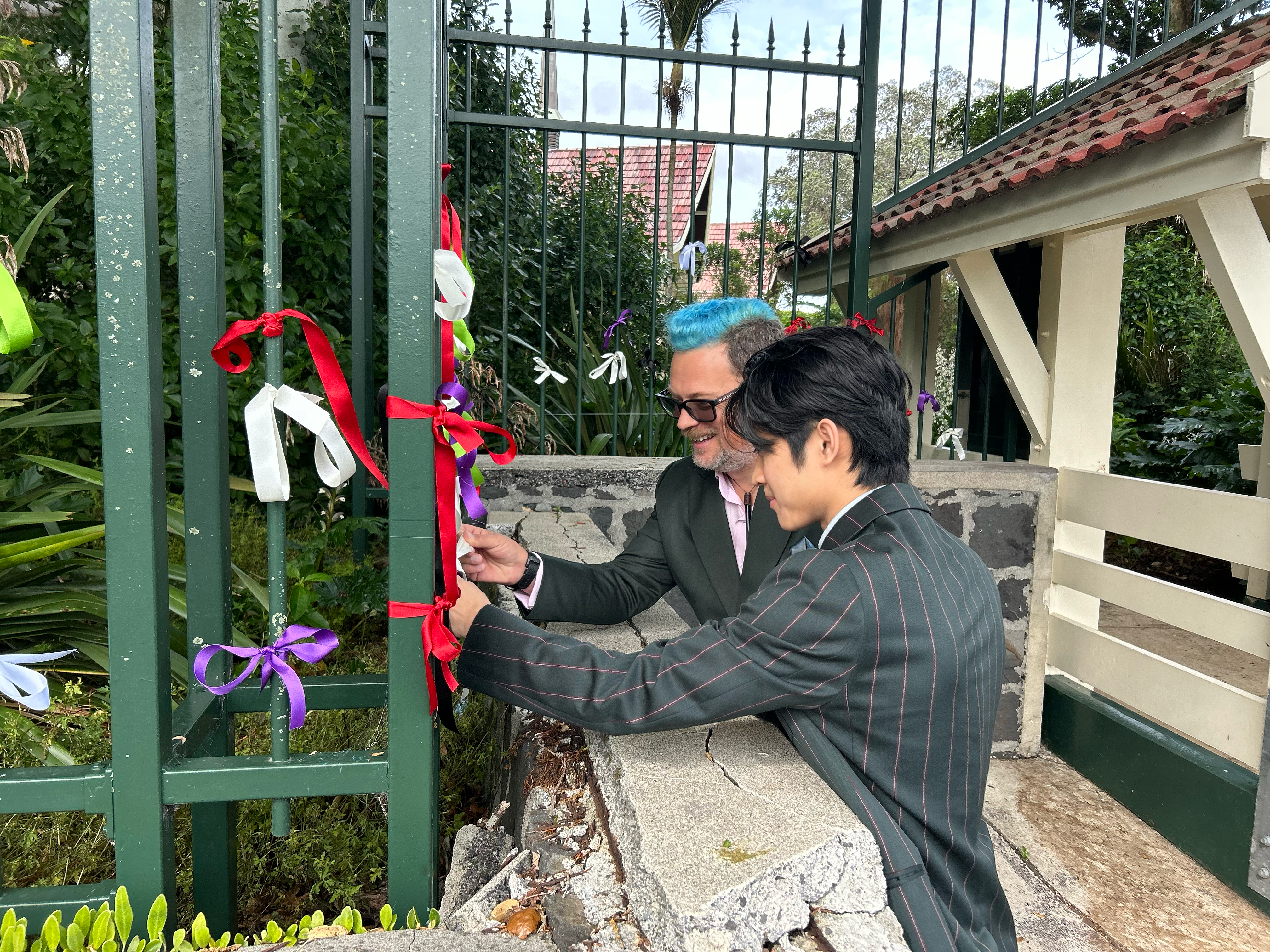Today, Dilworth students, prefects, staff, Old Boys, and Trustees gathered at a school assembly and ribbon-tying ceremony to mark the inaugural National Day of Reflection, initiated by the Government and observed by many across New Zealand as a day to remember survivors of abuse and neglect in state and faith-based care.

Members of the Project Reform Steering Group (PRSG) – a survivor-led collaborative design group comprising survivors and School and Dilworth Trust Board leadership – were the guests of honour, including Skot Jalfon, who honoured students past and present by tying the first ribbon. The Board was represented by Jonathan Mason (Board Chair) and Aaron Hockly (Trustee).
After the assembly was opened in prayer by Reverend Greg Worboys, Headmaster Dan Reddiex addressed those present and acknowledged the past abuse at Dilworth School.
“Sadly, our school was a place where, in decades past, young men suffered abuse in a manner most of us cannot comprehend because our lived experience at Dilworth today is an entirely different one from theirs.”
Bringing together the past, present, and the future for Dilworth, he went on to say,
“Today is about making space and time to remember our Old Boys, especially those who suffered abuse. It is about providing opportunities for them to re-engage and reintegrate into our school and their school. Equally, it is about committing to one another and to the generations that follow, that we will never allow what occurred to happen again.”
The commemorative gathering at Dilworth marked the anniversary of the Prime Minister’s official apology at Parliament to all New Zealanders who were abused in the care of state and faith-based institutions last November.
As his speech came to an end, Dan Reddiex discussed the significant changes that had taken place at Dilworth.
“Our past has created a burning platform for change; a change that puts you guys - our students - at the centre of all we do; a change that means our first and ultimate priority is your safety and well-being. A change that means the Dilworth of today is what it always should have been – a place where young men flourish and become good and useful members of society that Dilworth’s Founders, James and Isabella Dilworth, dreamed of and gave their wealth to bring life to well over a century ago.”
After the assembly, those present participated in a ribbon-tying ceremony as part of the Loud Fence movement, which began in Australia in May 2015 during the Australian Royal Commission into Institutional Responses to Child Sexual Abuse. As he offered Old Boys, Trustees, students, and staff the opportunity to come forward and tie a ribbon on the Dilworth fence, Dan Reddiex left them with this thought:
“Tying a ribbon acknowledges those who suffered abuse, and the ribbons will transform a regular fence into a Loud Fence. Loud because of the colour and volume of ribbons, but Loud also because of the many who were abused who had no voice.”





